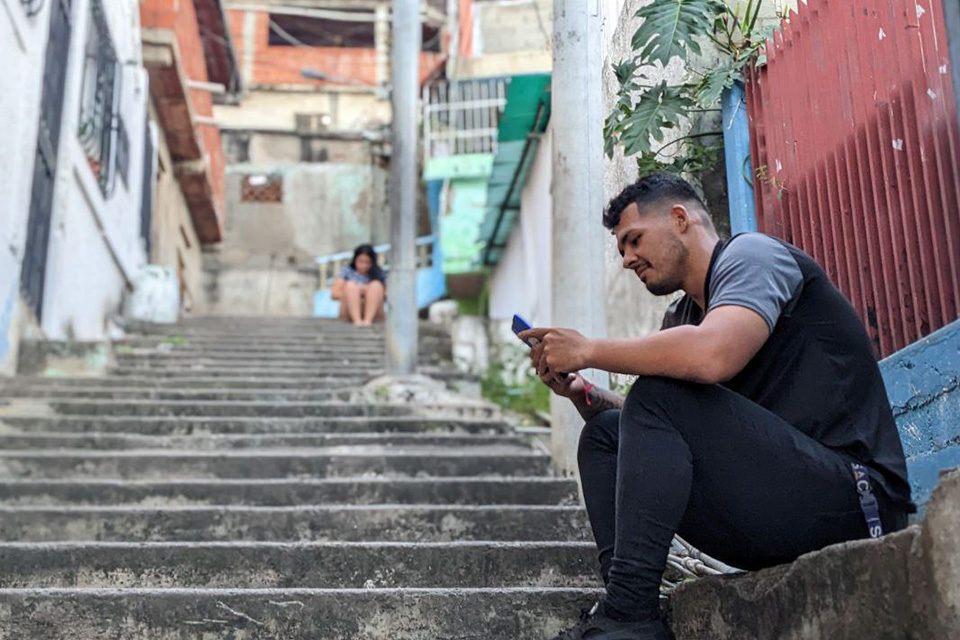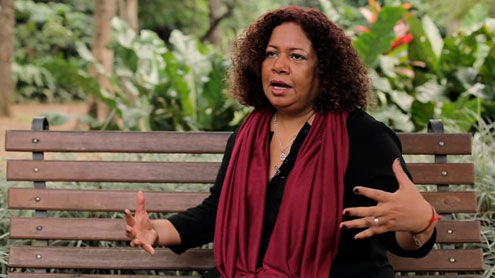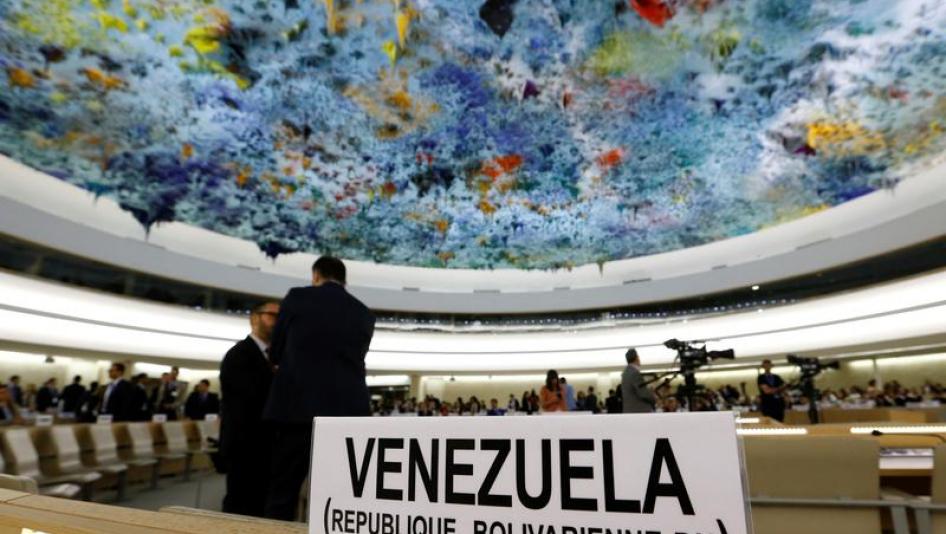It was one of those days of May when pink poui trees bloom in Caracas, trees that do not need water to grow.
Zulema González was at home when she received a call from Fundavene, a government-run foundation for donations and transplants of organs, tissues, and cells. She was informed of the suspension of the organ procurement program. At that time, she was not alarmed because she thought that her son was not going to be affected since he was going to travel to Italy to receive a bone marrow transplant. She remained calm.
Zulema told Radio Fe y Alegría that “the patients having surgery abroad were not supposed to be affected because the suspension only involved Venezuela”.
Two days later, while watching the news, she stopped doing the dishes with the water she had collected earlier and turned up the volume on her TV set to listen to the anchor explaining the details of the measure released by Fundavene and confirming that both national and international transplants were being suspended. All of a sudden, she felt a knot in her stomach.
Fundavene’s letter
On June 1, 2017, the Venezuelan Foundation for Donations and Transplants of Organs, Tissues, and Cells (Fundavene) notified the suspension of the transplant and organ procurement program in Venezuela.
Katherine Martínez, director of the Venezuelan NGO Prepara Familia, told Radio Fe y Alegría Noticias that, according to a letter released by Fundavene, the reason for the suspension was the inability of the Venezuelan State to guarantee the supply of immunosuppressant medication needed to avoid the rejection of a transplanted organ.

“I was attending a meeting at the nephrology department of the J.M. de Los Ríos hospital when the letter arrived; I can remember the doctors explaining the situation to the mothers and how the mothers began to worry because many of them had their hopes on transplants for their children. That was tough news, ”she said.
Bone marrow transplants that used to be carried out in Italy as part of an international agreement were also suspended in 2018.
Two years earlier, in 2016, the state-owned oil company PDVSA had signed an agreement with the Association for Bone Marrow Transplantation in Italy to pay for the treatment of patients diagnosed with leukemia who traveled from Venezuela to that European country.
In addition to not complying with payment commitments that amounted to 10,746,014 euros, the oil company failed to renew the agreements with 11 public hospitals in Italy that supported patients benefiting from the health program.
Bone marrow transplants are difficult to perform in Venezuela because the country only has two units available, one of them is public and the other is private. The latter is located at Hospital de Clínicas Caracas, while the public unit is located at Ciudad Hospitalaria Enrique Tejera (CHET), in the state of Carabobo.
“Hospital de Clínicas Caracas is unaffordable for most of the children, and in the case of the CHET you had to bring everything, from supplies, medicines, and food to clothing (…) It seems that you are only allowed to make use of the facilities because everything else has to be brought by the patient. Mothers are very vulnerable and cannot afford it”, explained Katherine Martínez.
She added that Fundavene and PDVSA were sending children and teenagers to Italy until the program was suspended. This caused the waiting list for bone marrow transplants to increase to 39 children as of early 2019.
The mothers held several demonstrations in May 2019 when some of the kids waiting for a bone marrow transplant began to die. Martínez said that “the kids were not able to travel to Italy because the program was suspended due to the arrears of the Venezuelan State with Italian public hospitals, which continues to increase due to non-payment, as well as the waiting list, ”.
Venezuela’s National Organization for Organ Transplantation estimates that 960 people could have a transplant in these four years of suspension, 150 of them children and teenagers who in most cases needed a kidney transplant.
Blame the blockade
In 2019, the Minister of Foreign Affairs of Venezuela, Jorge Arreaza, blamed the Government of the United States and the Venezuelan opposition for the deaths of the children in the J.M. de Los Ríos Hospital.
He said that the health program signed with Italy was executed through Citgo, a company confiscated by the North American country. “Venezuela sent the funds through PDVSA but the money was frozen in Novo Banco, Portugal, thanks to the sanctions and the criminal blockade.”
On April 25, 2019, Arreaza reported to the UN that “26 patients under the agreement between PDVSA and the Foundation for Bone Marrow Transplantation are at risk of dying because it has not been possible to transfer 4 million euros to that organization.”
Faced with the response of the Venezuelan Foreign Minister, Katherine Martínez and the parents of the children waiting for a transplant have expressed that the problem has nothing to do with the economic measures raised by the United States, “this is the consequence of a very old debt”.
A kid as strong as a pink poui tree
Zulema is the mother of Juan Manuel Acosta, an 11-year-old boy who wants to become a doctor.

“He tells me: ‘Mommy, I want to get well. I want to be a normal child like everyone else and then graduate as a doctor and help children who are in the same condition as me, “says Zulema with a broken voice.”
Juan Manuel was diagnosed with sickle cell anemia at six months of age, a disorder in the red blood cells that can cause sores on the legs and pain in the bones.
When Juan suffered the first stroke in 2017, Fundavene contacted Zulema to inform her that her son was a priority on the list to receive a bone marrow transplant abroad, but four years have passed since that call and Juan risks being no longer fit for the procedure.
“My son’s well-being keeps me fighting.” He has overcome the strokes and all the things that have happened. Generally, people who suffer a stroke are left with some sequels, but my son, thank God, has kept up well and has started walking again thanks to therapy. That is why I keep fighting. Just as he fights the disease, I also fight for him to have a better quality of life. If he has been able to overcome three strokes, he can overcome everything else, ”says Zulema, encouraging herself.
Juan Manuel has suffered three strokes: one in 2017, another in 2019, and the most recent in 2020, but it doesn’t matter. Life has put a test on him and he has bloomed by getting out of bed once and again, and perhaps one day, while wearing a white doctor coat, he will put the palm of his hand on the wood of his simile, one of those pink poui trees that do not need water to grow.
Translated by José Rafael Medina




